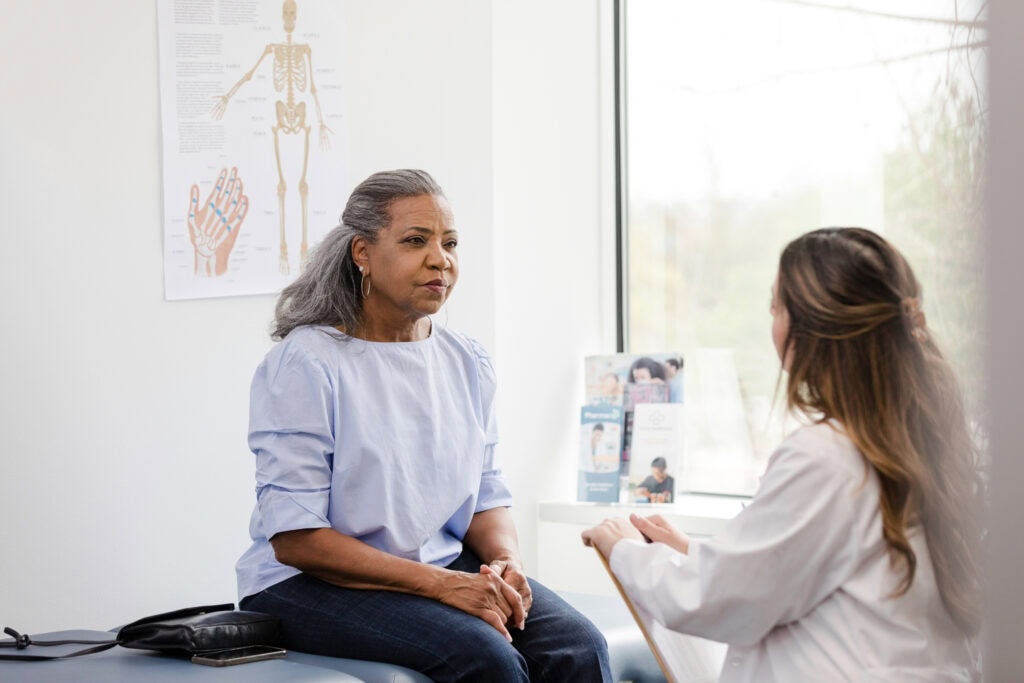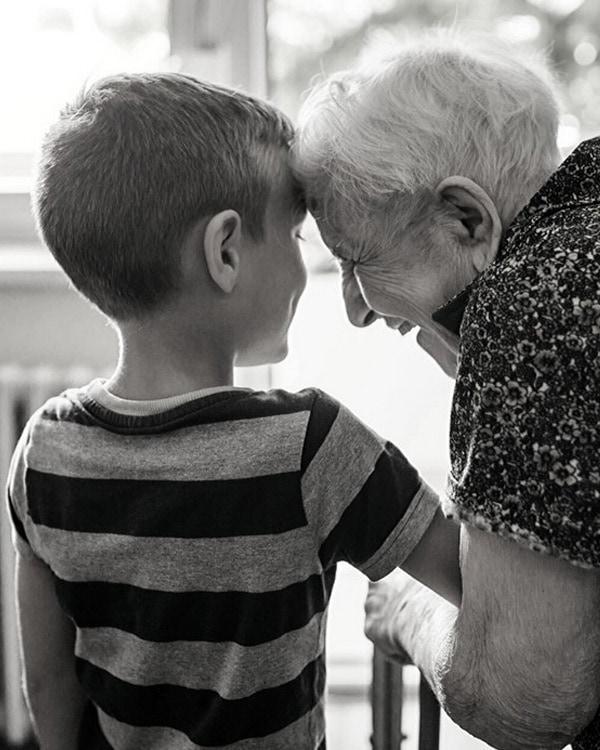
Diagnosis: Moving from denial to acceptance

Diagnosis: Moving from denial to acceptance
Being diagnosed with osteoporosis can be a confusing and frightening time and it is important to know that you are not alone. It is also common for those with osteoporosis – as well as their support network – to be in denial of this “silent” disease as there are typically no symptoms until a bone is broken!

Many may question, “Why and how did this happen to me? How will this impact both my daily activities and my long-term health? What steps should I take to reduce my fracture risk? Can I improve my bone health? Will this impact my intimate life? How will I manage the pain of my fracture?”
Oftentimes, we have hit the wall, felt angry, depressed or experienced other feelings and not known where to turn for support. Be patient and give yourself time to learn about osteoporosis and how it will impact you. Individuals who have osteoporosis share their learnings and strategies and find Osteoporosis Canada resources to help you live your fullest life possible.
Your first priority is to take care of yourself! Identify who should be part of your healthcare team
Don’t let denial get in the way of looking after your health. Identifying your healthcare team is your first and most important step. Each person’s situation is unique and is based on many factors such as overall health, age, medical history, and lifestyle. There is much research and advances in osteoporosis treatments happening and by working with your healthcare team, you can learn and implement personalized approaches and treatments to help monitor and improve bone health, reduce the risk of fractures, exercise safely, and improve your well-being.
Your team may include, but is not limited to any of the following specialties that can help you get educated to better understand what steps to take next:
- Family Doctor, Nurse Practitioner, Registered Nurse
- Pharmacist
- (Bone-fit certified) Physiotherapist
- Osteoporosis specialist
- Registered Dietitian
- Occupational Therapist
- Dentist
- Other Healthcare Providers
Reach out to your personal support network
Talking with those close to you about your situation can help you to overcome any anxiety or fear that you have. A support network is also important when you need practical help whether that be support with daily chores, shopping, lifting or moving objects. Since others can’t see that you have osteoporosis, it’s important to let them be aware of your diagnosis and to ask for help when needed.

Get educated and join a program and/or support group
Making a list of questions you have in advance of meeting with your healthcare team can often be helpful. Consider having a family member attend your appointments with you, which will help educate them while also being there to help document important information and instructions.
If you use the internet to research information about osteoporosis, take care that you are consuming credible and reliable evidence-based information as there is so much inaccurate and conflicting information about this disease. For reliable evidenced-based information and support take time to go through the Osteoporosis Canada site where you will find a wealth of resources including programs and support groups to help you in your journey.
Progress over Perfection
Depending on your personal circumstances you may need to modify your activities and hobbies.
Take time to breathe and adjust to your new reality. Creating an action plan with small daily steps can add up to a lot of change.
Steps you might take could include:
- Realizing that chores do not need to be done all at once – pace yourself appropriately
- Educating yourself about osteoporosis and how to support bone health
- Modifying exercises and focusing on increasing balance and strength to reduce falls and fractures
- Reaching out for help from those close to you
- Keeping a journal or calendar to track your medication/s, progress, and actions so far
- Finding new hobbies and activities that align with your interests and capabilities
Advocate for yourself
Acknowledging and accepting that you have changed and that you have an increased risk of fracture is one of the most important steps you will take. From there, it is important to advocate for yourself – to get the support you need whether that be in the form of expanding your healthcare team or asking for help with daily activities. Remember that unless you share your situation with others, they will have no idea that you need help – so speak up!

Wherever you are on your personal journey, realize that you are not alone. Make an action plan and plot a course to take care of your health and well-being.
Credit: COPN, the Canadian Osteoporosis Patient Network is the patient arm of Osteoporosis Canada, a national network of people living with osteoporosis.





